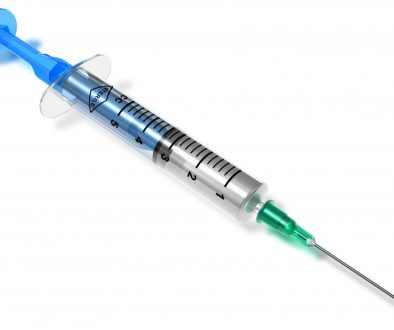Philadelphia Criminal Defense – Physicals & Drug Testing
The new school year is here and many students in Pennsylvania and New Jersey will participate in athletics in public and private schools. Others may have graduated and started jobs following high school or college graduation.
Prior to that participation or new employment, the school or employer will require the person to have a physical to ensure that they are fit to compete in a hope to avoid a tragedy which sadly seems to occur far too frequently. This physical will more than likely involve a drug test
Within the school environment, we want our children to be safe if they choose to compete in athletics but some parents have asked if there young adult must submit to a drug test which isn’t meant to detect anything but the presence of an illegal substance like performance enhancing drugs (steroids) or illegal narcotics like heroin, cocaine, or marijuana. I have received similar questions from persons starting new jobs or careers. Our Philadelphia based criminal defense law firm has represented young adults and students in a variety of situations in Pennsylvania and New Jersey.
School & Private Employer Drug Testing
The short answer to this question is no! There is no constitutional right to refuse a drug test for an athletic competition participation, just like there isn’t a right to refuse a drug test for the purpose of private employment. While drug testing technically is a search under the United States Constitution (4th Amendment), this type of drug testing falls outside the scope of any constitutional protection as it is a condition of participation or the employment. In other words, you don’t have to take the test but you have to take it if you want to compete. Further and more importantly, if the organization or institution isn’t a government agency, it’s not a search under any state or the US constitution. I have written previous articles on “state actor” searches which explain this concept and I encourage you to read them for more information on this topic
What Does the Law Consider a Search?
Most people believe that an illegal search and seizure is restricted to the search of a person’s home, car, or personal belongings by a government agent or government actor. This is simply incorrect!
The law, however, defines a search as any intrusion on a person’s privacy. Not all searches are illegal even if they do infringe on a person’s constitutional right under the Fourth and Fourteenth Amendments as well as the applicable section of a state constitution (Pennsylvania Article 1, Section 8). While most don’t know it, drug testing is a search.
This type of testing can include the analysis of a person’s blood, breath, or urine following a DUI/DWI in Pennsylvania or New Jersey. Drug testing is obviously an infringement upon a person’s privacy rights but this type of infringement is permissible where police can establish probable cause. In Pennsylvania and across the country, police, in the past didn’t need a search warrant for any type of drug testing but this changed followed the US Supreme Court’s decision. Law enforcement now need a warrant for a DUI blood search but there are exceptions to this requirement. It is very important that you speak to your criminal defense lawyer about this issue as it could be a game changer in your case.
A search warrant, however, is not needed where the law permits an exception to the warrant requirement such as a DUI arrest where police administer a breathalyzer.
The legal theory behind exceptions to the search warrant requirement is that the government’s need to protect the public outweighs an individual’s interest. Further, if police are required to obtain a warrant for each and every drug test it would frustrate the government’s ability to keep the public safe. While exceptions to a search warrant still require police to establish reasonable suspicion and probable cause there are situations where the government can conduct a search without any type of reasonable suspicion or probable cause.
Government Employment Drug Testing
Court, at all levels, have stated on numerous occasions that testing without any type of suspicion is permissible in limited situations such as testing workers in safety sensitive industries following an accident or drug testing as a part of an employment application. In these situations while an administrative governmental agency and not a law enforcement agency are conducting the test for the purposes of a specific job it is still considered a search. These are administrative searches but they pertain to industries where safety is a primary concern.
Compelling Government Interest Outweighs The Expectation of Privacy
The government has a compelling interest in making sure that certain environments are drug free and that the employees that are working in these places are physically and mentally fit for their jobs. These workers privacy interests are outweighed by the government’s interest in public safety. Workers who are employed in public or government run industries such as health care, transportation and even the military have a diminished expectation of privacy according to the courts because they work in industries which directly affect the public’s safety.
Conclusion
In closing, government drug testing, unlike school or private employer drug testing are searches under the Constitution but you more than likely have diminished expectation of privacy in these situations. If you aren’t sure, it’s important to speak to knowledgeable Philadelphia criminal defense lawyer. Call our office with questions, we are here for you.



